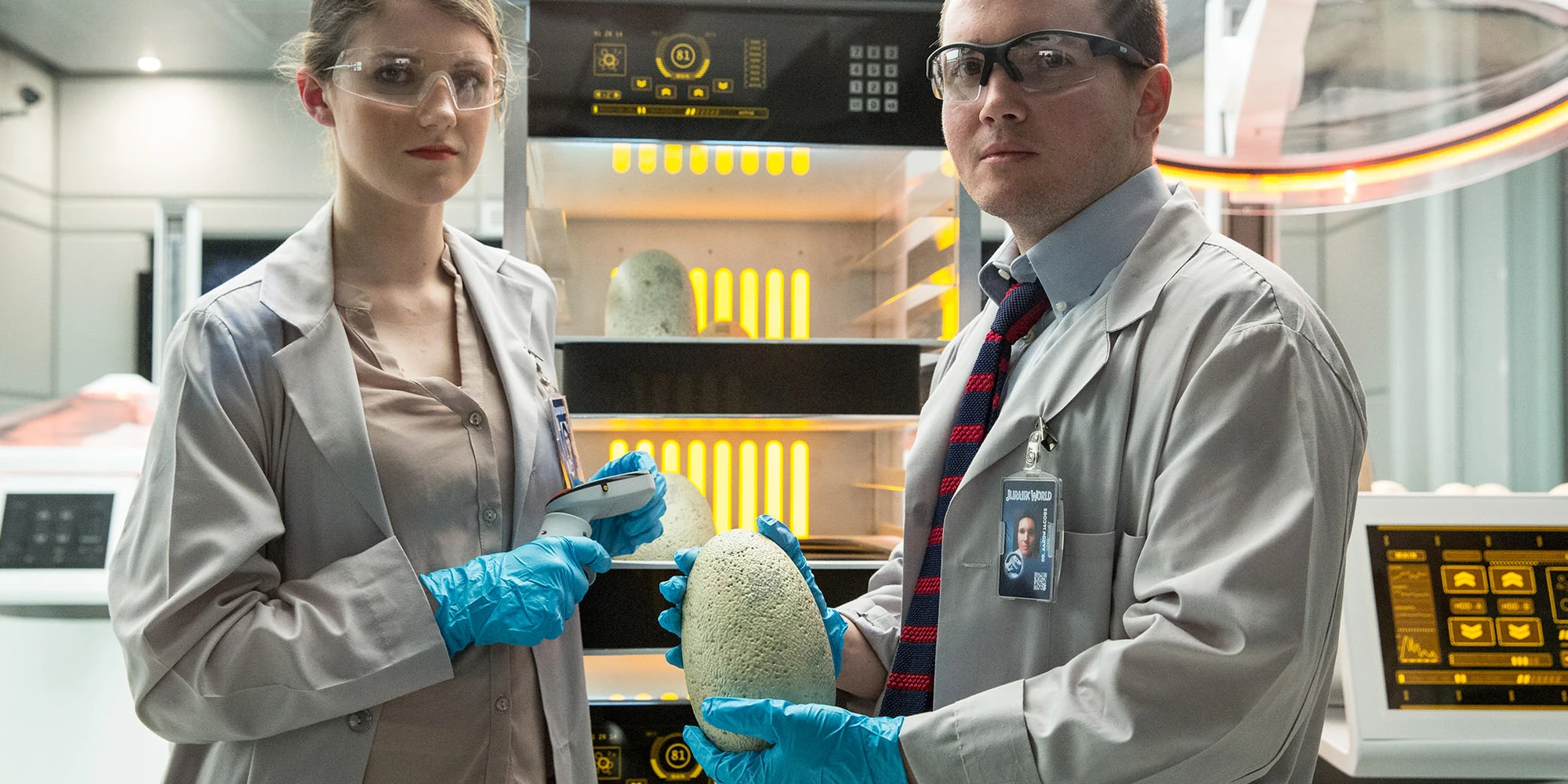Ever wondered what it takes to build and maintain a thriving dinosaur park? In Jurassic World Evolution 2, the secret to success lies not just in the mighty dinosaurs, but also in the well-being of your scientific staff. Neglecting the needs of your scientists is a surefire path to disaster.
In the world of Jurassic World Evolution 2, scientists are the backbone of your operations. They are responsible for everything from researching new technologies and medications to undertaking expeditions to capture new dinosaurs. Their expertise is crucial for creating gene modifications and keeping your prehistoric attractions healthy. However, these vital members of your team are not tireless machines. Just like in any workplace, scientists in Jurassic World Evolution 2 require regular breaks and a supportive environment to remain productive and content. Without proper care, they can quickly become overworked, disgruntled, and ultimately, less effective. Ensuring their happiness should be a top priority for any aspiring park manager. Neglecting this aspect of park management can lead to decreased efficiency, sabotage, and even the complete collapse of your carefully constructed dinosaur haven. A happy scientist is a productive scientist, and a productive scientist is the key to a successful Jurassic World.
| Category | Details |
|---|---|
| Game Title | Jurassic World Evolution 2 |
| Game Series | Jurassic World Evolution |
| Developer | Frontier Developments |
| Genre | Construction and Management Simulation |
| Key Mechanic | Staff Management (Scientists) |
| Scientist Role | Research, Expedition, Gene Modification, Treatment |
| Scientist Needs | Regular Breaks, High Morale |
| Consequences of Neglect | Low Efficiency, Sabotage, Park Collapse |
| Maximum Scientists | Up to 16 |
| Personnel Centers Required | Two, with Scientific Capacity extension |
| Unofficial Subreddit | r/jurassicworldevo |
The importance of staff management in Jurassic World Evolution 2 is a crucial element often overlooked by players eager to jump straight into dinosaur breeding and park design. The game introduces a complex staff mechanic, which, if managed correctly, enhances almost every aspect of the game. This means paying attention to the skills, traits, and well-being of your scientists, as they directly impact the speed and success of your park's operations. Properly managing your scientists allows you to optimize research, streamline expeditions, and ensure the health and safety of your dinosaurs, leading to a more profitable and stable park.
- Keloland News Anchors Tragedy Headlines Whats New
- The Untold Story Charlie Browns Fathers Occupation More
Understanding the intricacies of scientist management is key to mastering Jurassic World Evolution 2. Scientists possess different skill sets and specializations, such as genetics, paleontology, and welfare. Matching the right scientist to the appropriate task is essential for maximizing efficiency. For instance, a scientist with high genetics skill will excel at gene modification, while one with strong paleontology knowledge will be more effective on expeditions. The game provides tools and interfaces to monitor each scientist's skills, fatigue levels, and morale, allowing you to make informed decisions about task assignments and rest schedules.
Beyond skills, each scientist has unique traits that influence their performance and behavior. Some scientists may be prone to stress, while others are more resilient. Understanding these individual characteristics is vital for creating a balanced and effective team. For example, assigning a high-stress scientist to a demanding task without adequate breaks can quickly lead to unrest and potential sabotage. By carefully selecting and managing scientists with complementary skills and traits, you can create a synergistic team that can overcome even the most challenging situations.
One of the most critical aspects of scientist management is ensuring they receive adequate rest. Scientists in Jurassic World Evolution 2 have a fatigue meter that depletes as they perform tasks. If their fatigue level becomes too high, they become stressed and their performance suffers. The game provides several ways to manage scientist fatigue, including assigning them to rest breaks, providing comfortable living quarters, and implementing policies that reduce their workload. Failing to address scientist fatigue can lead to a cascade of negative consequences, including decreased research speed, increased dinosaur sickness, and even acts of sabotage. A well-rested scientist is a productive scientist, and investing in their well-being is essential for long-term park success.
- White Pants Costume Ideas Halloween Beyond Guide
- Kaalan Walker Superfly Actor Sentenced To Life In Prison
Morale is another crucial factor in scientist management. Low morale can lead to decreased productivity, increased stress, and a higher risk of sabotage. Several factors can affect scientist morale, including their workload, working conditions, and the overall safety and stability of the park. To boost scientist morale, you can implement policies such as providing better pay, improving living conditions, and ensuring the park is free from major incidents, such as dinosaur breakouts. Additionally, the game allows you to build amenities and recreational facilities that provide scientists with opportunities to relax and socialize, further improving their morale and job satisfaction. Happy scientists are more loyal, dedicated, and less likely to cause problems, making morale management a vital component of park operations.
Expanding your scientific capacity is essential as your park grows and your research demands increase. Jurassic World Evolution 2 allows you to hire up to 16 scientists, providing you have the necessary infrastructure. To accommodate this many scientists, you need to build two personnel centers, each equipped with the scientific capacity expansion. This expansion increases the number of scientists that can be housed and managed, allowing you to delegate tasks more efficiently and accelerate your research progress. Investing in scientific capacity is a crucial step towards achieving long-term sustainability and innovation in your Jurassic World.
The challenges of managing scientists in Jurassic World Evolution 2 can sometimes feel like a mini-game within the larger park management simulation. Players often find themselves juggling multiple tasks, from dinosaur care and guest satisfaction to staff management and research priorities. Some players have even joked that they are playing "Scientist World Evolution" rather than "Jurassic World Evolution," highlighting the significant role that scientists play in the game. The constant need to monitor their fatigue levels, morale, and skill sets can be demanding, but it is also a rewarding aspect of the game. Mastering the art of scientist management is the key to unlocking the full potential of your park and achieving true dinosaur dominion.
The concerns addressed in Jurassic World Evolution 2 regarding scientific oversight echo real-world ethical debates, particularly surrounding genetic engineering and the manipulation of DNA. The franchise, both in its books and films, has long explored the potential dangers of "playing God" with nature's genetic code. These narratives tap into anxieties that emerged as scientists gained the ability to manipulate DNA in the real world. The creation of genetically modified dinosaurs, such as the Indominus Rex, serves as a cautionary tale about the unforeseen consequences of unchecked scientific ambition. As Henry Wu famously stated, "You didn't ask for reality, you asked for more teeth," highlighting the ethical compromises that can occur when prioritizing entertainment over scientific responsibility.
Henry Wu, a central figure in the Jurassic Park and Jurassic World franchises, embodies the complex ethical dilemmas associated with genetic engineering. As the chief geneticist of Ingen and later Biosyn, Wu is responsible for reviving the dinosaurs and creating new species, including the Indominus Rex. His character serves as a cautionary tale about the dangers of unchecked scientific ambition and the potential for hubris when manipulating the building blocks of life. Wu's actions raise profound questions about the responsibility of scientists and the ethical boundaries of genetic engineering.
Jack Horner, a renowned paleontologist who served as a scientific advisor for the Jurassic Park and Jurassic World films, provides valuable insights into the science behind the fiction. Horner's expertise helped to ensure that the dinosaurs in the films were as scientifically accurate as possible, while also adding elements of creative license for dramatic effect. He has also spoken about the importance of responsible science communication and the need to educate the public about the wonders and challenges of paleontology and genetic research. His contributions to the Jurassic Park franchise have helped to inspire a new generation of scientists and dinosaur enthusiasts.
On Tuesday, June 9, 2015, in Los Angeles, CA, Paleontologist Jack Horner participated in a Jurassic World Q&A at the Natural History Museum. This event provided a unique opportunity for fans to engage with a leading scientific voice behind the films and to learn more about the real-world science that informs the fictional world of Jurassic Park. Such events bridge the gap between scientific research and public understanding, promoting interest in paleontology and related fields.
The genetics lab in Jurassic World, a scientific complex located in a restricted area of Isla Nublar, served as the hub for much of the genetic research conducted in the park. This exclusive site, accessible only to a limited group of visitors, was where scientists like Henry Wu conducted experiments on dinosaur DNA, creating new species and modifying existing ones. The lab's remote location and high-security measures underscore the sensitive nature of the research being conducted and the potential risks associated with genetic engineering. The Jurassic World: Evolution game also reflects this aspect, showing players the kind of facilities required to support such advanced scientific endeavors.
The legacy of Jurassic Park extends far beyond the realm of entertainment. The franchise has inspired countless individuals to pursue careers in science, particularly in fields like paleontology and genetics. The films have also sparked important conversations about the ethical implications of genetic engineering and the responsibility of scientists to consider the potential consequences of their research. Jurassic Park didn't just create dinosaurs on screen; it created scientists in theaters, fostering a sense of wonder and curiosity about the natural world and the potential for scientific discovery.
Scientists in Jurassic World Evolution 2 need to take regular breaks, lest they become overworked and disgruntled. This guide will teach you how to boost their morale, while simultaneously optimizing your parks operations. So, it is important to remember that the wellbeing of your scientists is intricately linked to the success of your park. By implementing effective staff management strategies, you can ensure that your scientists are happy, productive, and ready to tackle any challenge that comes their way. After all, a thriving Jurassic World is built on the foundation of scientific expertise and dedication.
- Mustsee Documentary Release Date May 23 2025 Hbo Max
- Peppers Senior Dog Sanctuary A Loving Retirement Home

/https://tf-cmsv2-smithsonianmag-media.s3.amazonaws.com/filer/b8/31/b8315443-1574-4b6d-83af-07d795c2c6d2/1.jpg)
